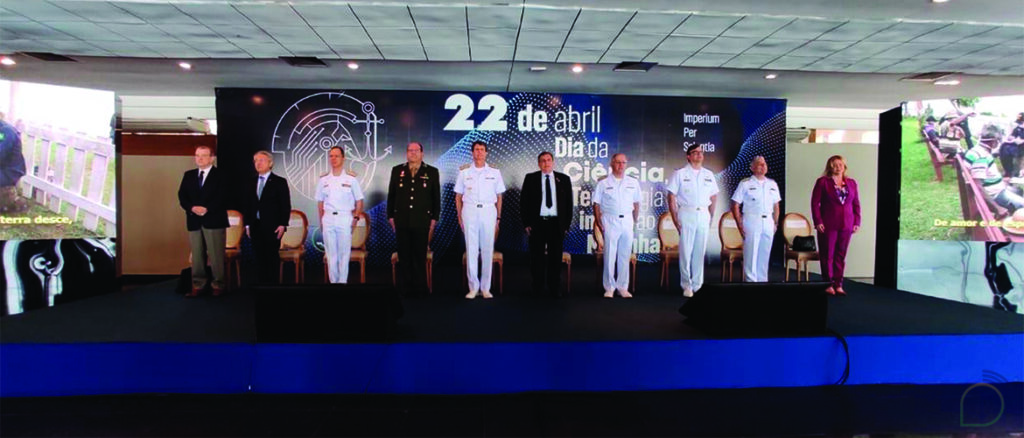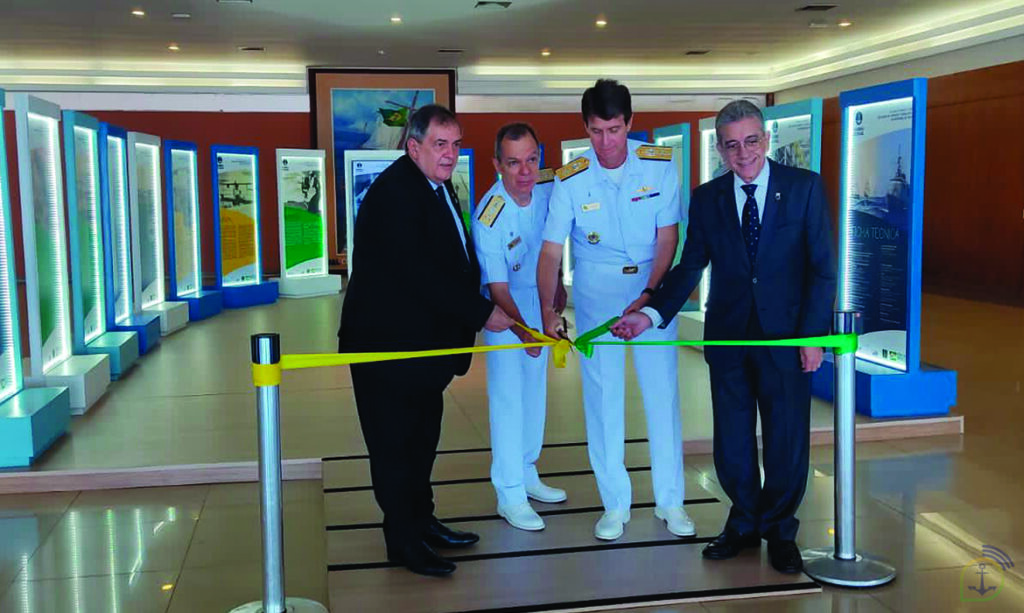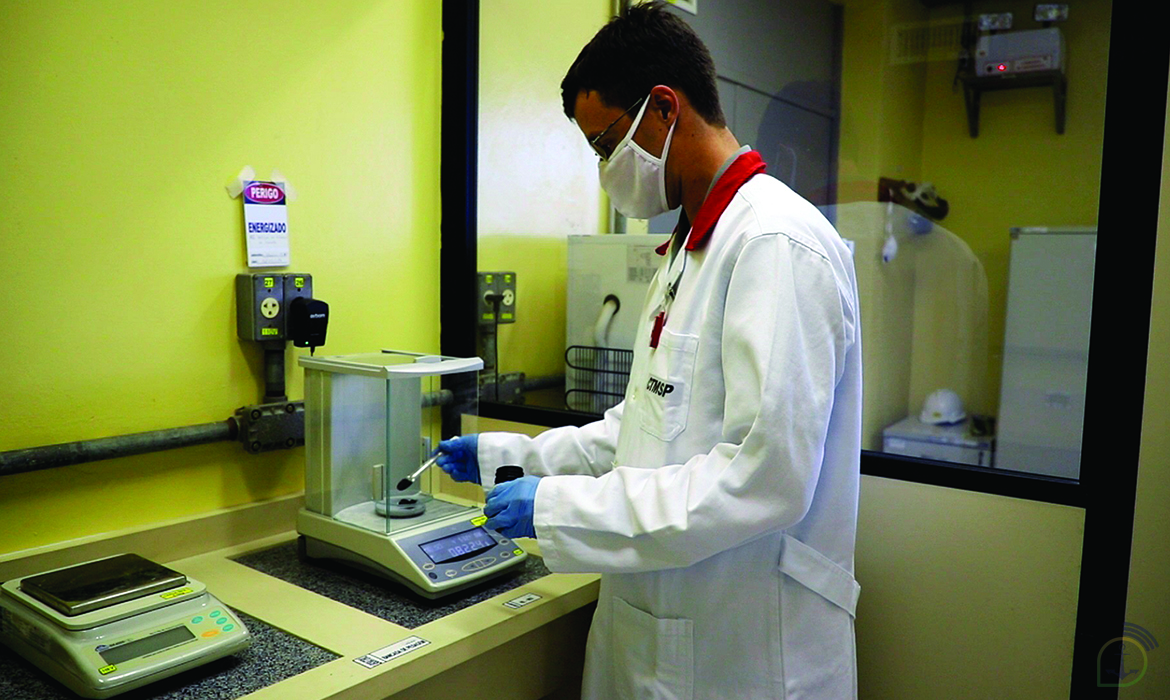Minister of Science, Technology and Innovations praises the work of researchers from the Brazilian Navy
Lieutenant-Captain (RM2-T) Camila Marques de Almeida
To value and celebrate the exponential gains and growth in the areas of science, technology and innovation, a ceremony was held yesterday (2), by the Brazilian Navy, at the Naval Club in Brasilia, alluding to the Day of Science, Technology and Innovation (CT&I) in the Navy. According to the Director of the Navy Technology Center in São Paulo, Vice-Admiral Guilherme Dionizio Alves, “the day has a great importance because it is a moment to remember our predecessors and the legacy they left us, and at the same time it forces us to work daily in the present to build a strong Navy compatible with the aspiration that Brazil needs”.
The date on which the Day of Science, Technology and Innovation in the Navy is celebrated makes reference to the birth of the patron Admiral Álvaro Alberto, celebrated on April 22, who was an outstanding scientist and sailor, besides being the pioneer in Brazil in research in the area of nuclear energy.
“We are a country that seeks a differentiated role on the planet and all the challenges that are presented to us, we have met based on scientific and technological knowledge. We have advanced in a world that demands technological sovereignty and here we are talking about strategic technologies. All of this is a unique effort that, if we don’t make it, no one will make it for us,” said Paulo Alvim, Minister of Science, Technology and Innovations.
“This is the moment to honor an icon of Brazilian science and technology, Admiral Alvaro Alberto, who is the patron of Science and Technology in the Navy. Today we also witnessed the presentation of the 33rd annual research magazine, which shows the contribution of military and civilian researchers in the Navy,” Minister Paulo Alvim.
Among the events scheduled for the ceremony, the inauguration of the exhibition “A Sea Called Time: 200 years of technological advances of the Brazilian Navy”, which recalls important chapters in the history of technological advances throughout the twentieth century, and the biography of eight Navy personalities whose role was decisive for the evolution of the institution, were highlighted.
There was also the presentation of the “Sovereignty through Science” Award, created in 2016, with the purpose of recognizing and rewarding the work developed by researchers and research teams from the Navy’s scientific, technological, and innovation institutions.
In this fifth edition, the award was given to Corvette Captain (Technical Staff) Flávia Rodrigues Pinheiro, from the Navy Hydrography Center. The winning work was entitled “Meteorological Synoptic Chart in Editable Digital Format: innovation allied to subjective quality”, which focuses on meteorological charts.
“The idea is to digitize a manual process to minimize production time from hours to seconds using free and open source software. I am happy to win the award and to have contributed in some way to the Navy’s technological advances,” said the Corvette Captain.
The event also included the launching of the 33rd edition of the Pesquisa Naval Journal, which is a periodical for the scientific community that presents a collection of studies developed by researchers in the scientific, technological, and innovation areas, whose topics are of interest to the Navy.
The journal is published by DGDNTM and evaluated by the Periodicals, Annals, Journals and Magazines Classification System of the Coordenation for the Improvement of Higher Level Personnel.

Science, Technology and Innovation in the Navy
The Navy invests daily in science, technology and innovation. Currently, it is already possible, for example, to have access to simulators capable of reproducing, with fidelity, a navigation and maneuvering environment for training. The gangway simulator is a project that, besides presenting the weather conditions, simulates waves and situations that involve great risks in the real world.
The Naval Force has other technological assets, such as the system that tracks the position of merchant ships and vessels, contributing to Search and Rescue operations, illegal fishing enforcement, combating piracy, and drug and weapons trafficking.
This tool, called the Maritime Traffic Information System, and the previous simulator example were developed by the Naval Systems Analysis Center. But it doesn’t stop there; the Naval Research Institute has developed a technology that makes it possible to obtain distilled water without the need to boil the liquid, thereby using much less electricity.
The membrane distillation technology also takes advantage of the heat rejected from ships’ diesel engines, and this system helps save energy. With the desalinated water produced, all that is needed is to add the necessary mineral salts and it can be consumed by the crew.
In the environmental area, the Instituto de Estudos do Mar Almirante Paulo Moreira, located in Arraial do Cabo (RJ), has military and civilian researchers, biologists, and oceanographers engaged in studying the marine species of the Brazilian coast.
The work carried out is collection, producing information that subsidizes the environmental management of the waters by the Brazilian Navy (MB) for the society. These are some examples of the most diverse projects and research that the Navy has been performing over the years and that are in line with the scientific and technological development in the country.
In addition, the MB has raised its level of performance in the area of science and technology, incorporating in its scope the activity of innovation, in accordance with the System of Science, Technology and Innovation. “This system, through its Scientific, Technological and Innovation Institutions, covers the activities of the Submarine Program and the Navy’s Nuclear Program, developing initiatives with the best management practices in its strategic projects, in accordance with the National Defense Policy, the Navy’s Strategic Plan (PEM 2040), the Navy’s Science, Technology and Innovation Strategy, and other documents that guide these areas in Brazil,” explained the Secretary-General of the Navy, Admiral Marcelo Francisco Campos.

*** Translated by DEFCONPress Team ***
